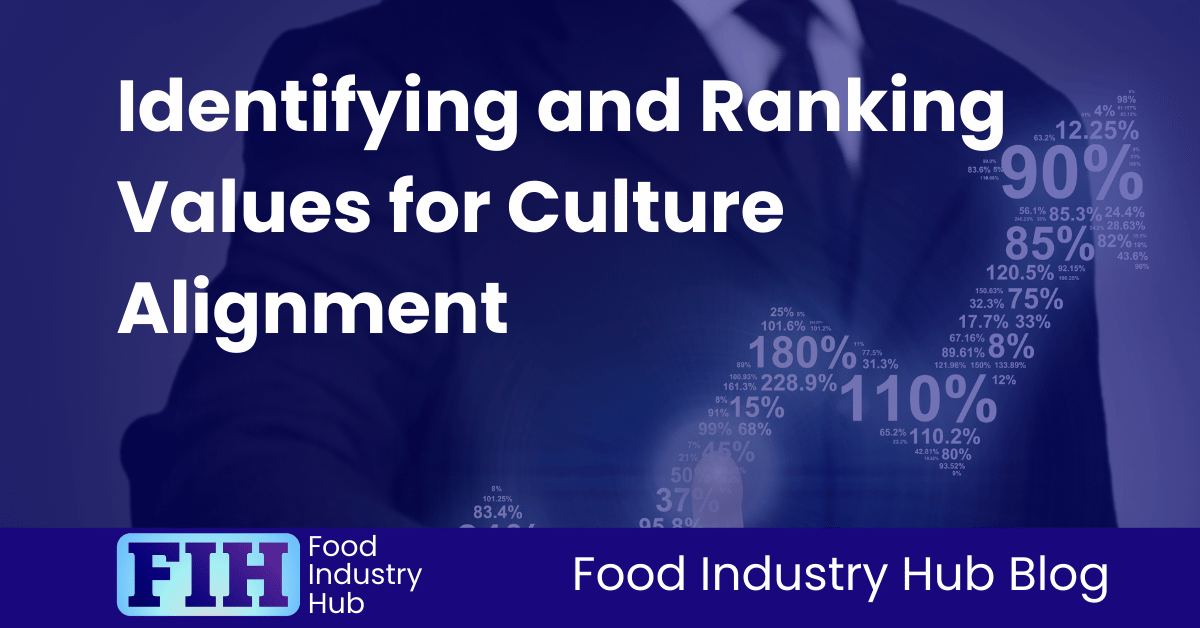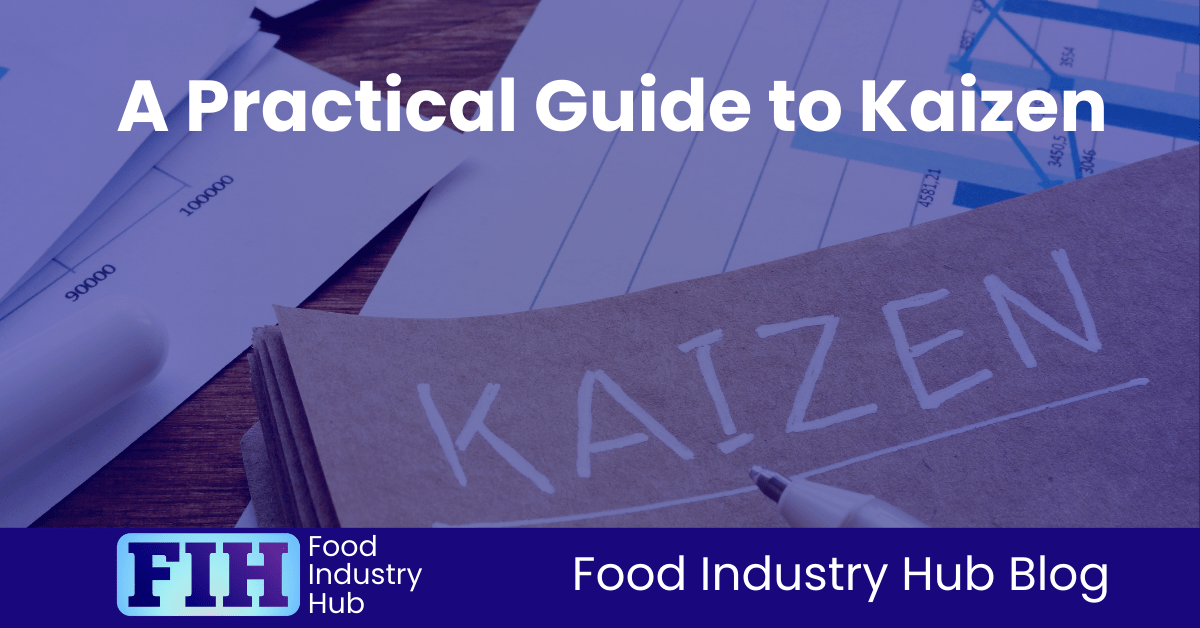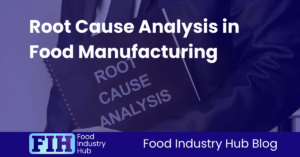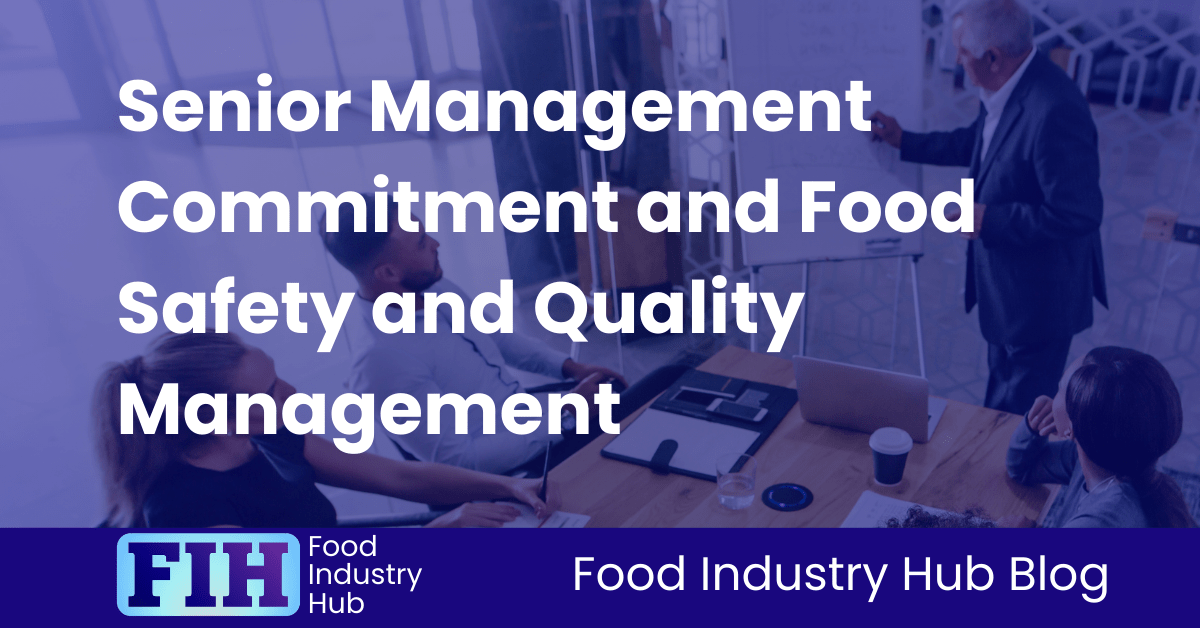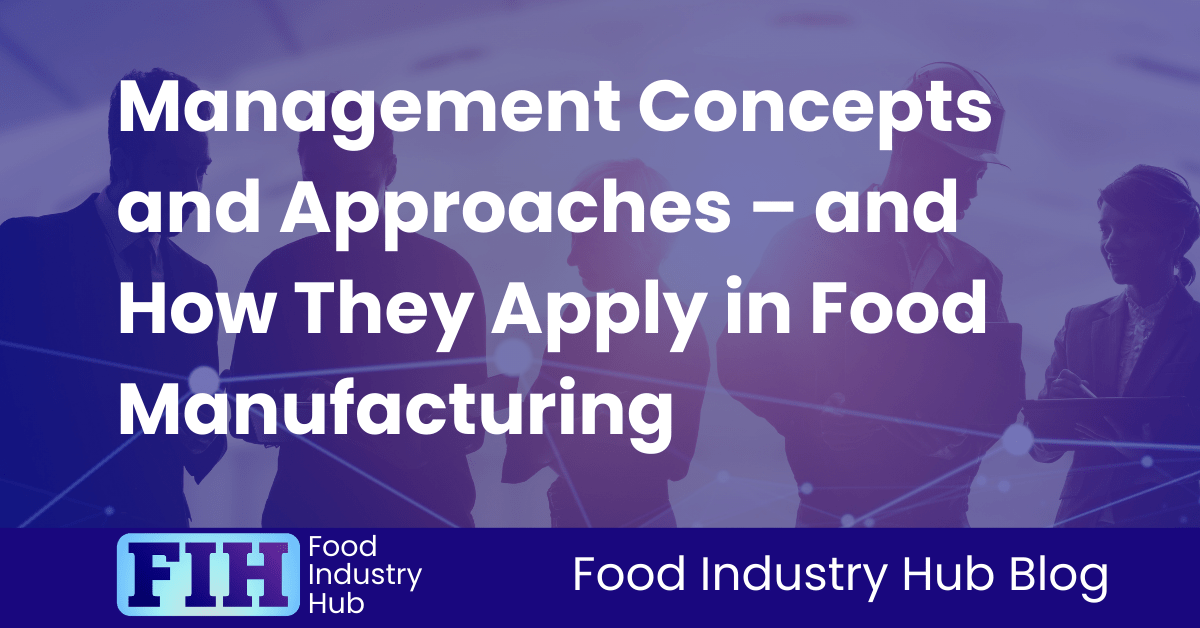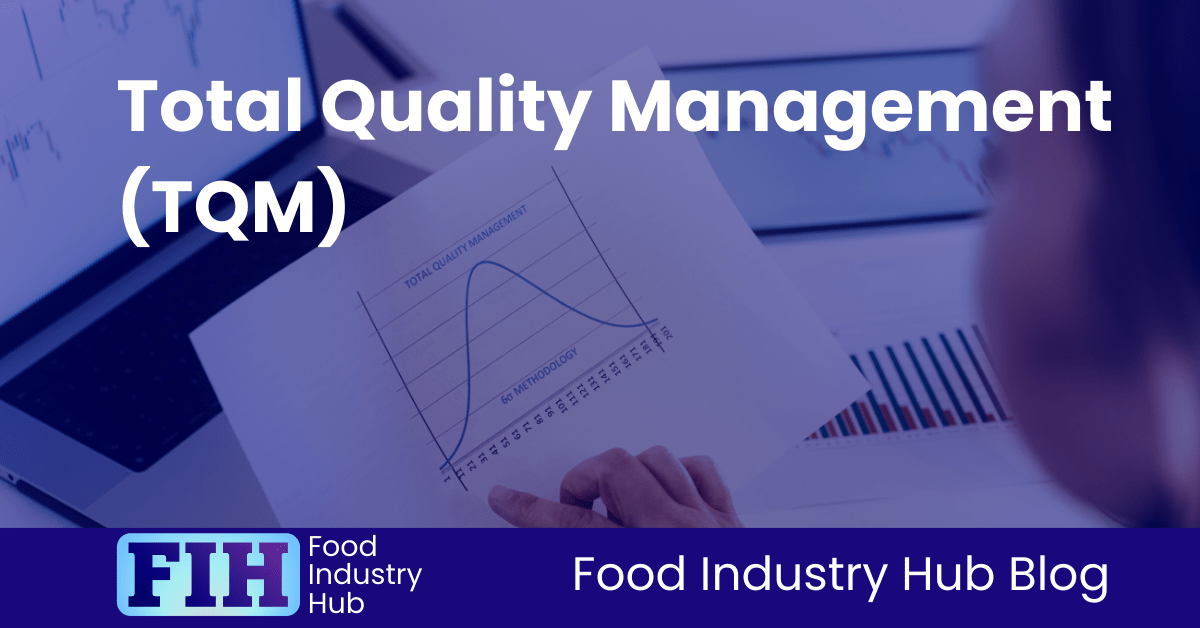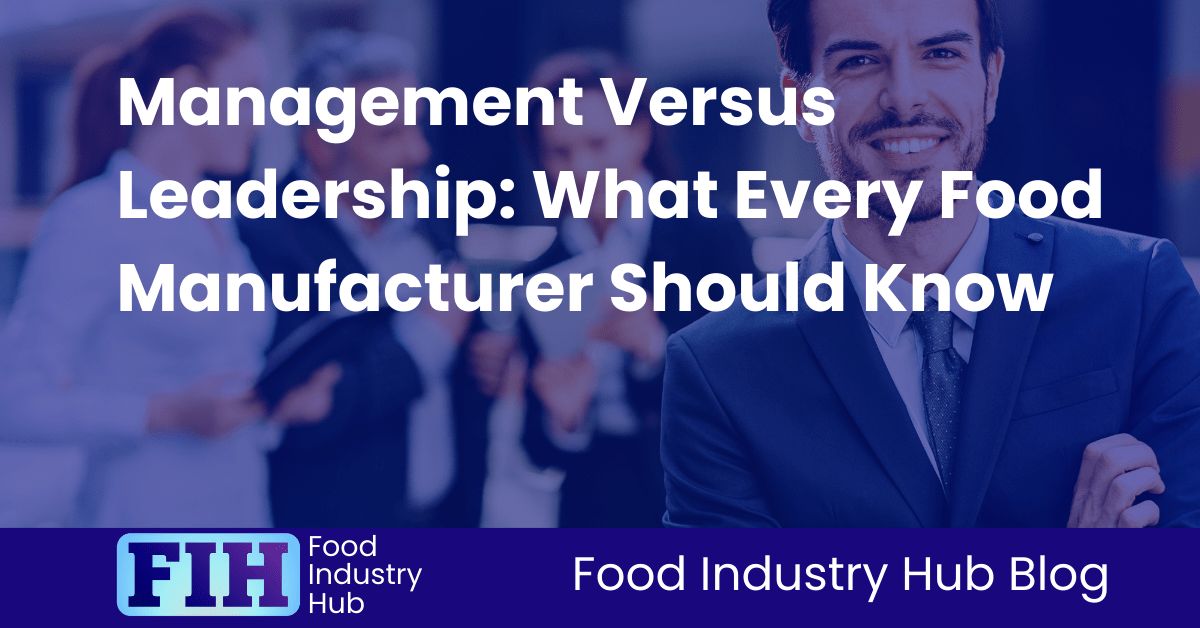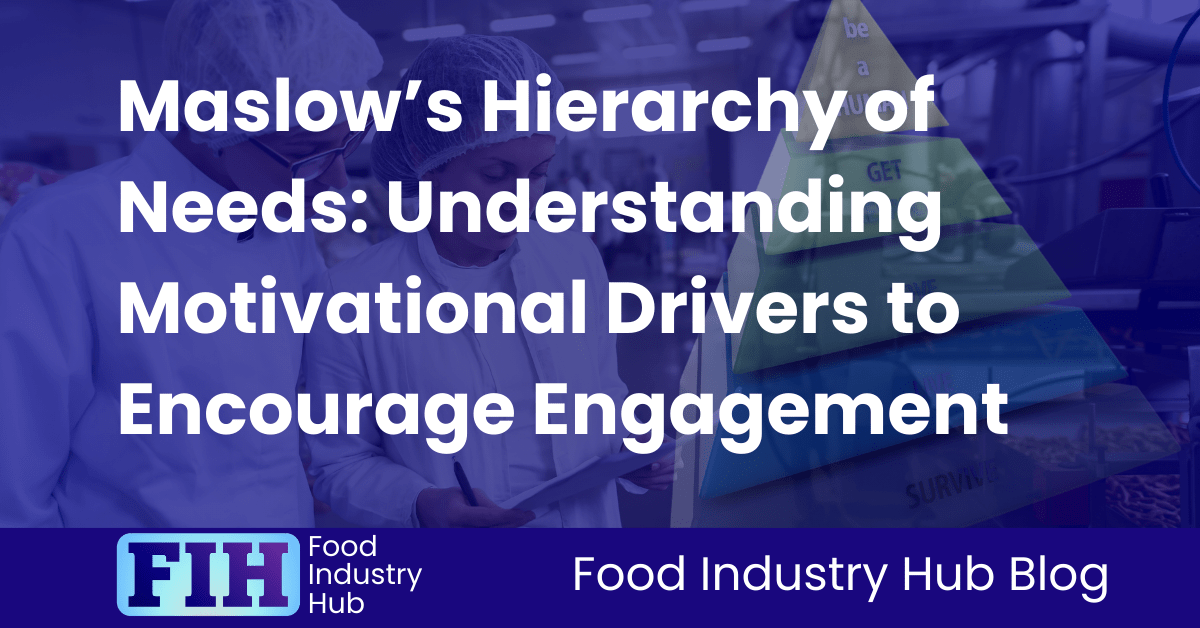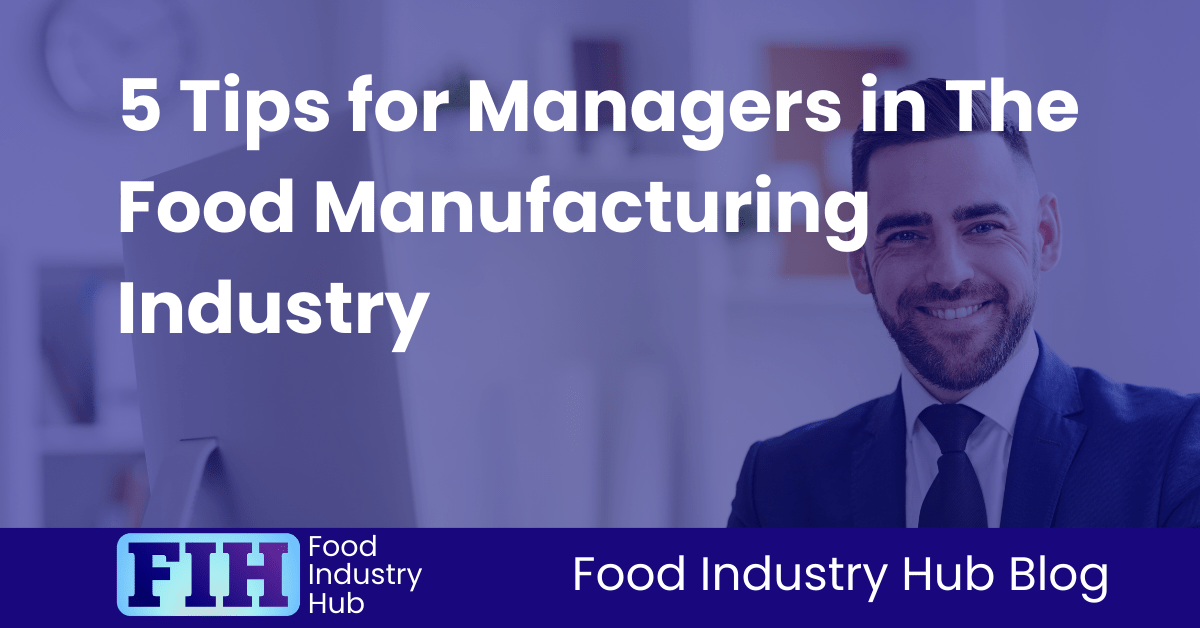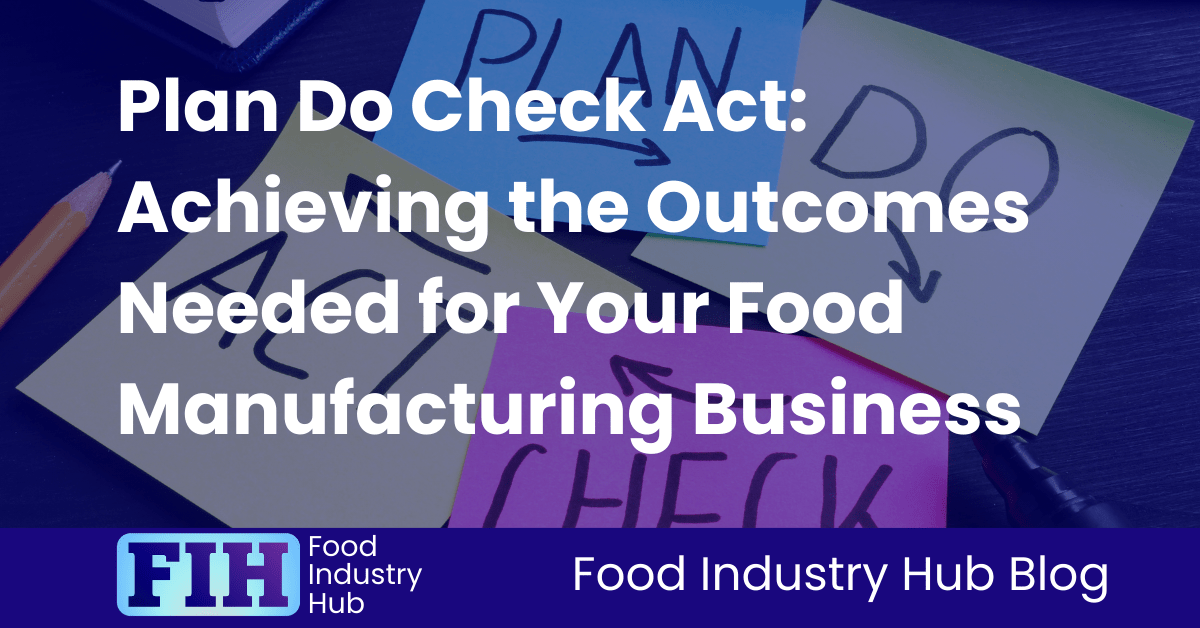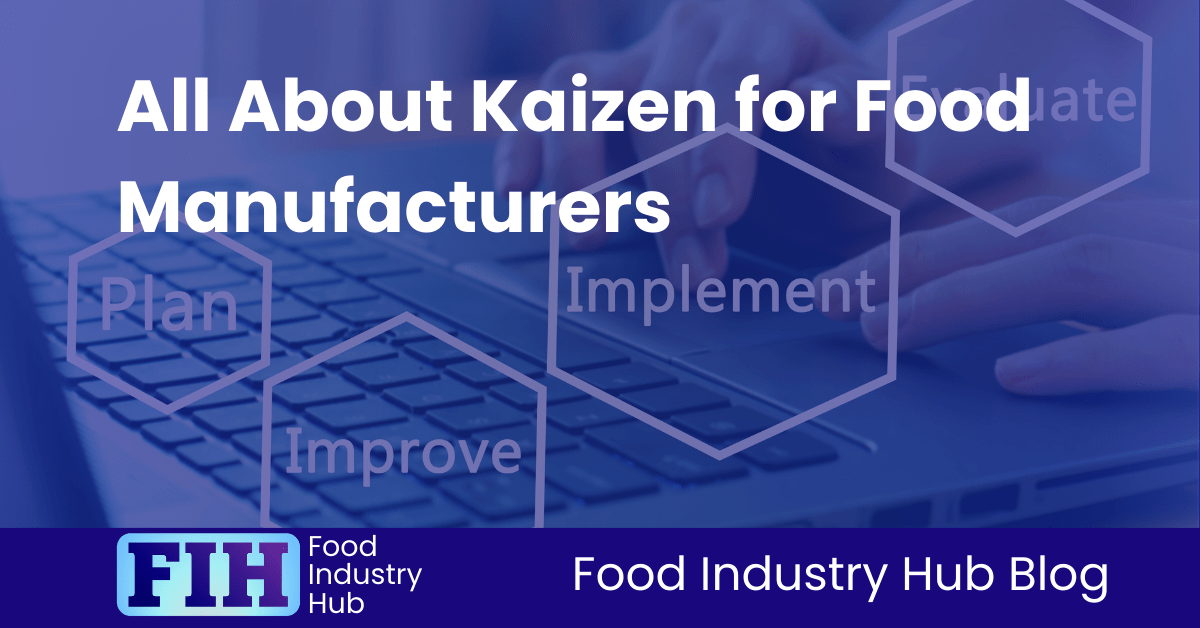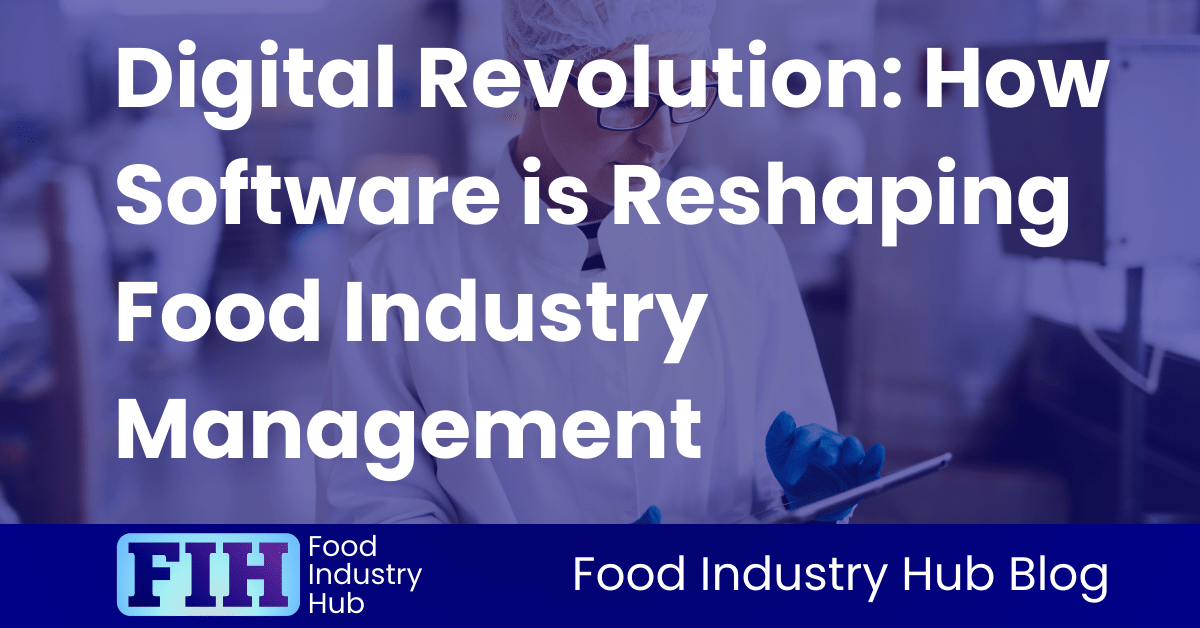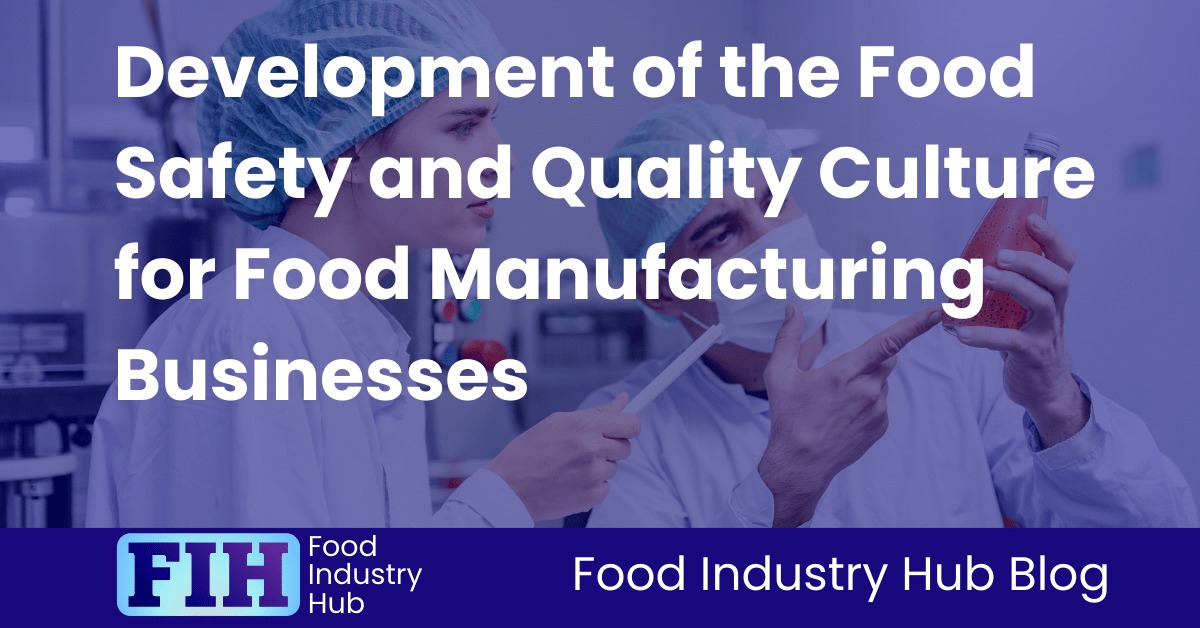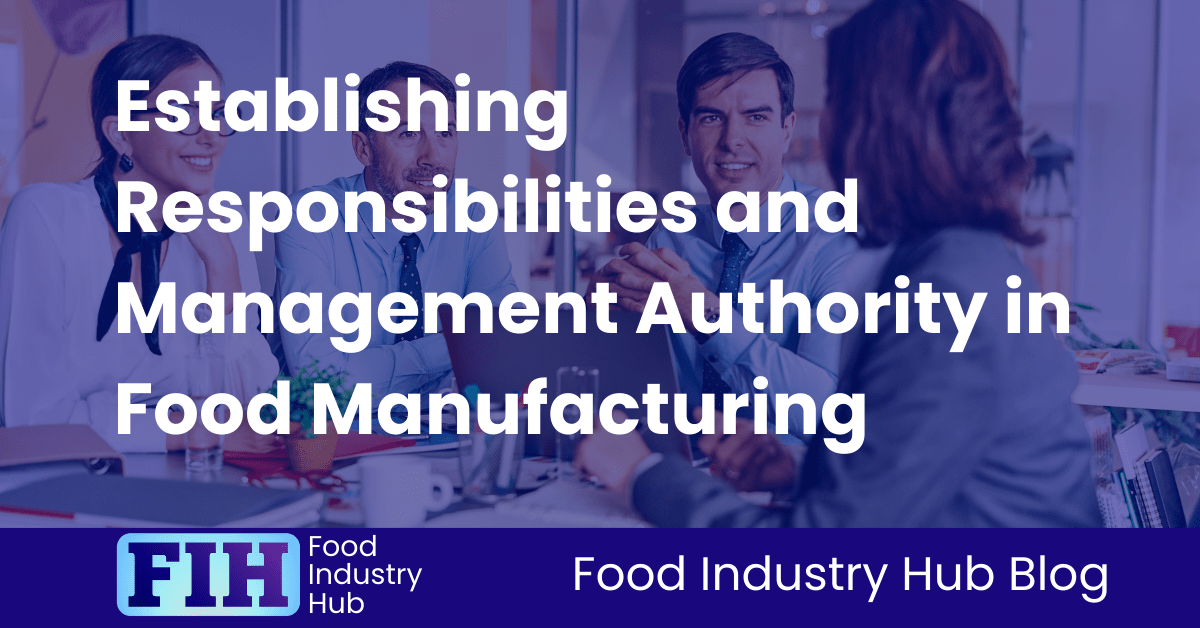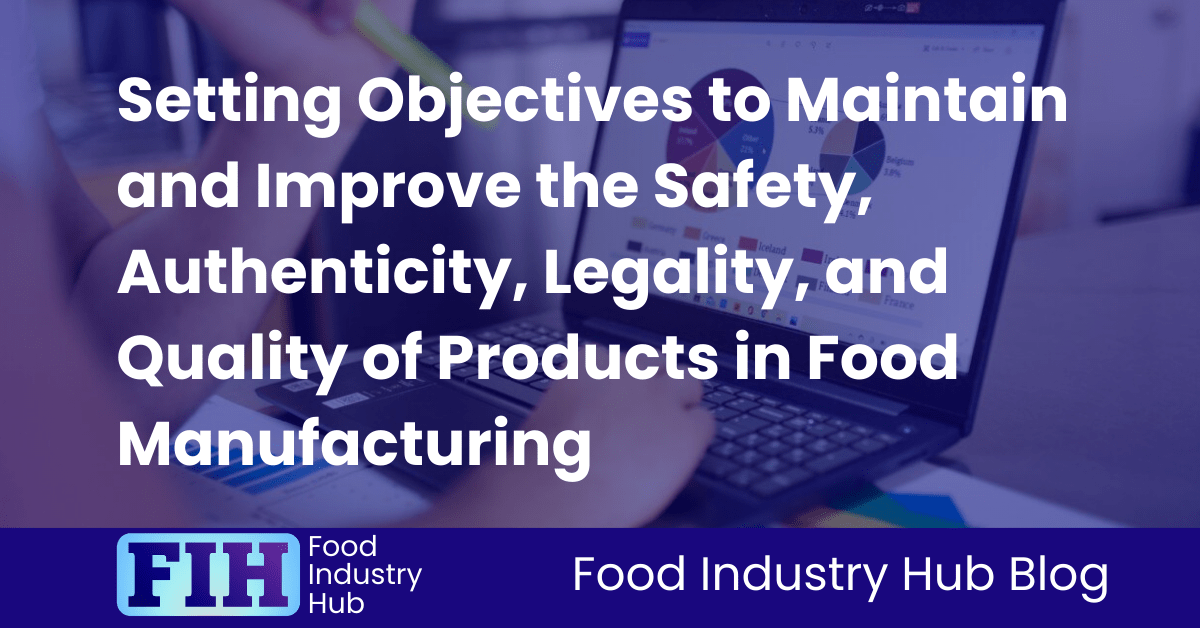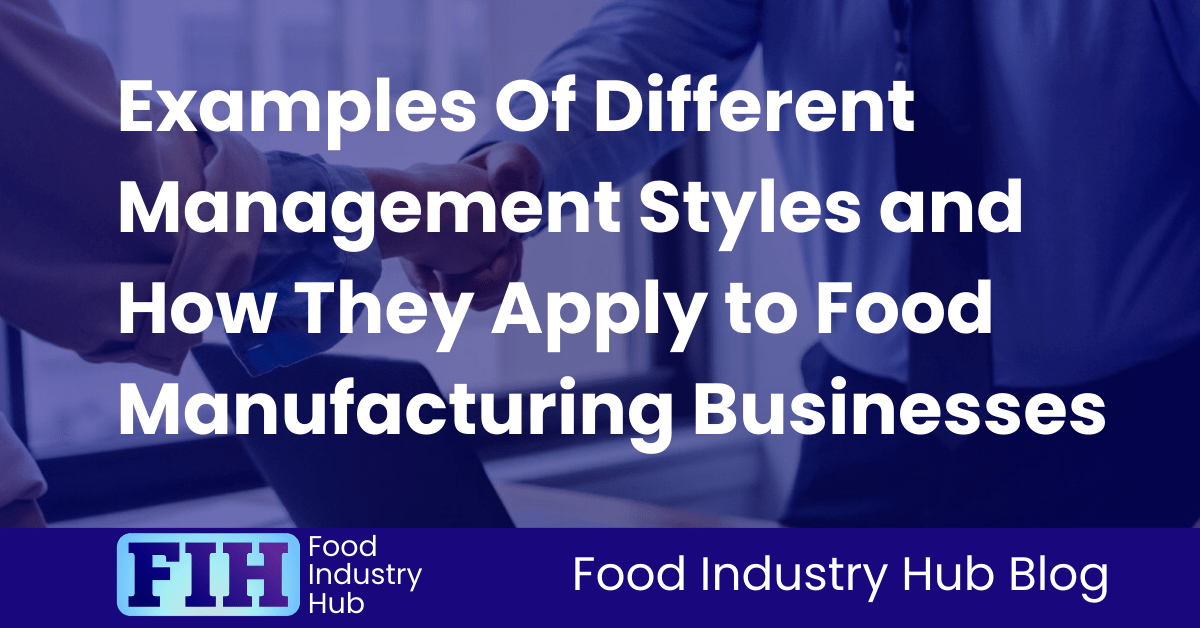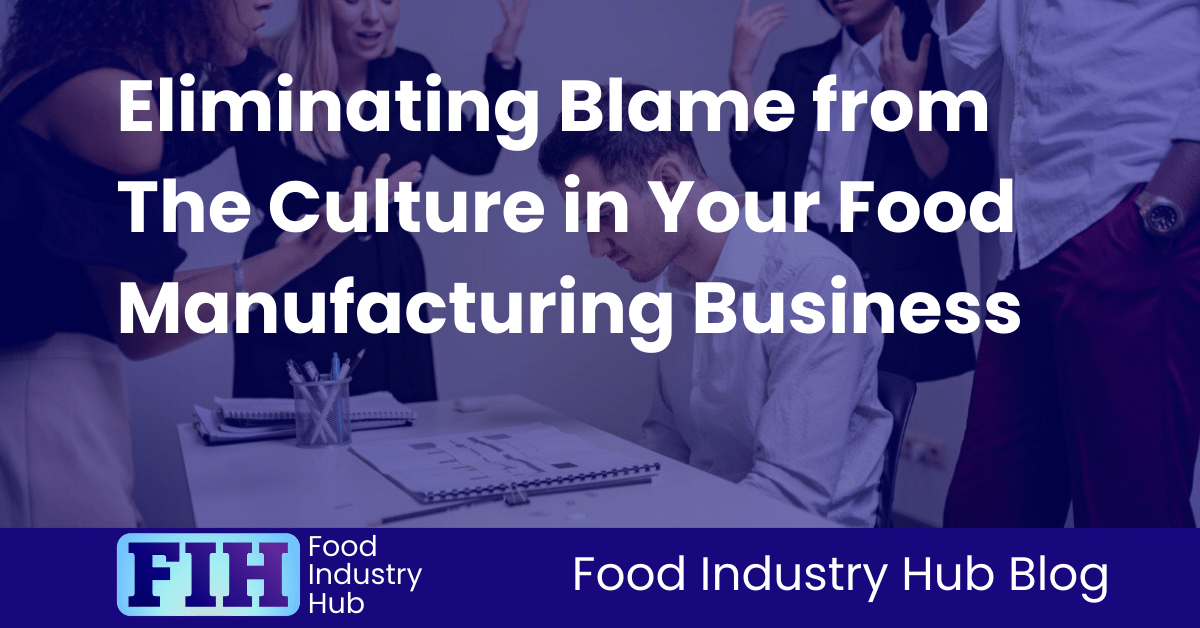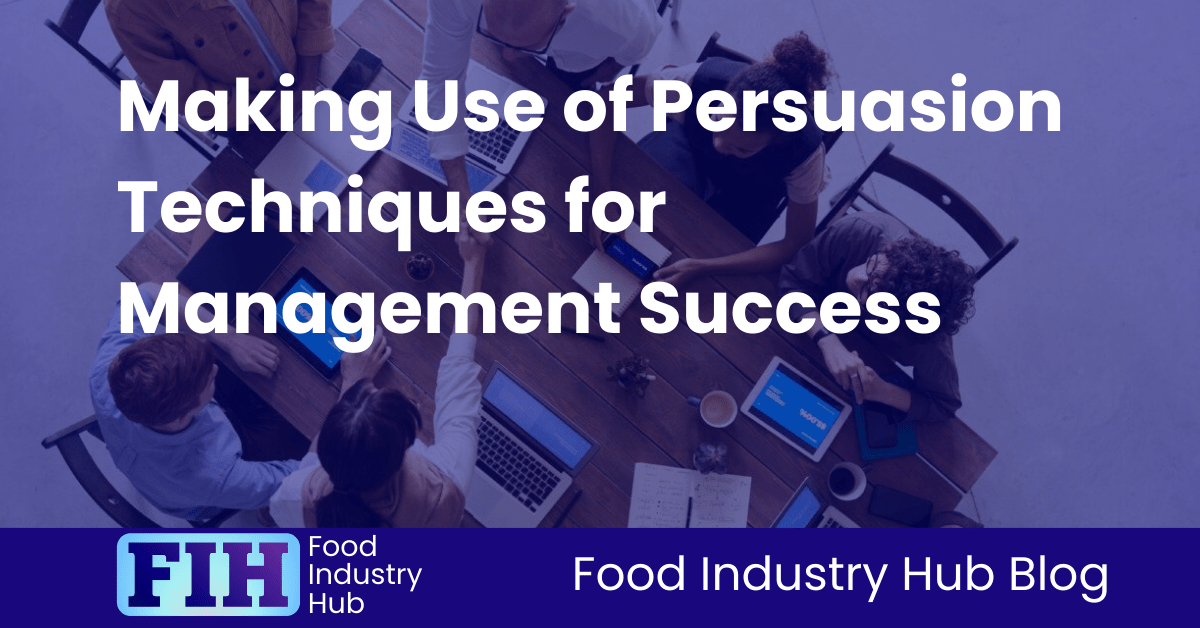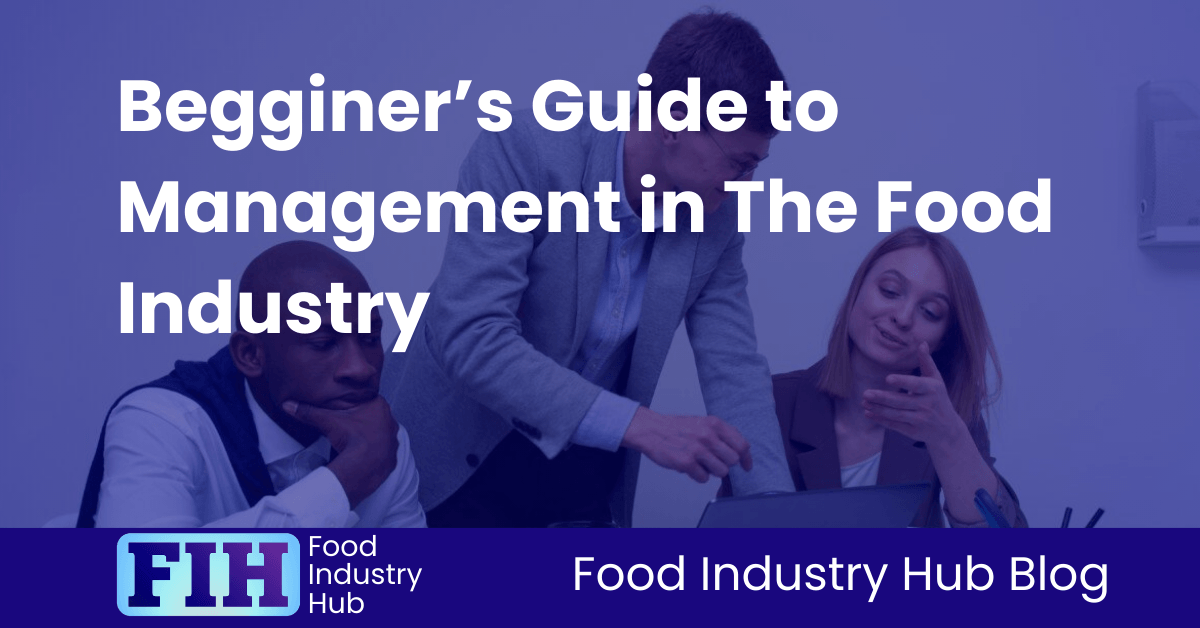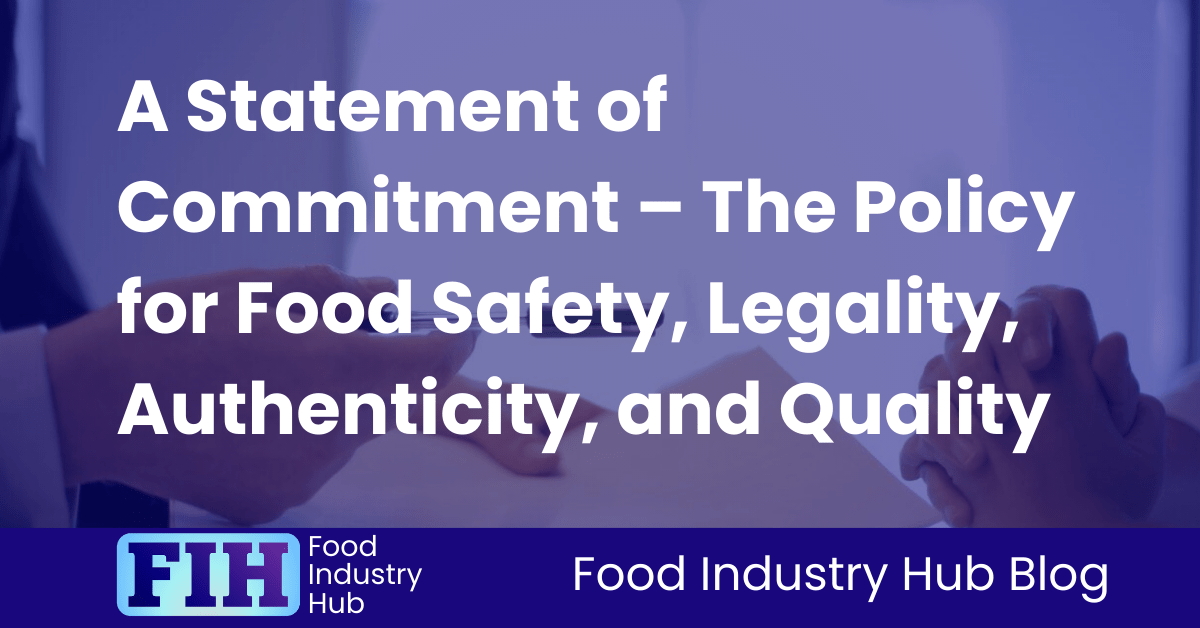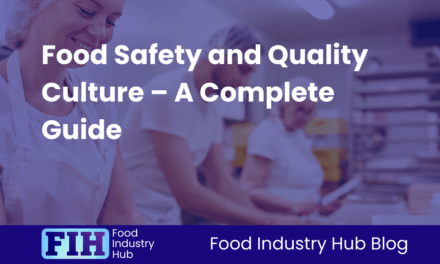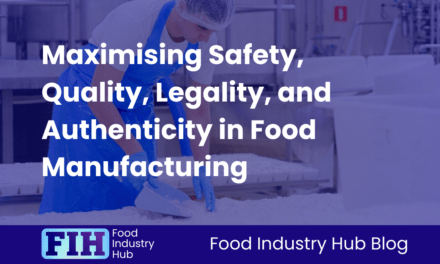Introduction
Food Industry Hub serves the food industry with a range of digital resources for the benefit of both commercial food manufacturers and food industry professionals.
For food manufacturers, we offer integrated management systems that give every user a direct interface with your QMS.
For food industry professionals, we provide an extensive signposting service in addition to informational content we hope you’ll find useful as you face new professional challenges. We have very ambitious plans to expand the range of services offered, and currently present informational content on management, safety and quality, and professional success:
Maximising safety, quality, legality, and authenticity in food manufacturing
Management
This collection will be of interest to those in managerial roles, or who are considering taking on a management position. ‘Management’ might refer to process management, project management, systems management, people management, and a range of related applications.
The informational resources are presented in no particular order.
In food manufacturing, finding ways to improve efficiency, maintain quality, and reduce waste is critical to staying competitive. This is where Kaizen, a Japanese philosophy of continuous improvement, offers a compelling solution. By focusing on small, incremental changes rather than sweeping overhauls, Kaizen enables food manufacturers to tackle challenges systematically while fostering a culture of collaboration and innovation. Whether you’re aiming to streamline production lines, enhance food safety standards, or reduce operational costs, Kaizen provides a practical and proven framework for achieving sustainable improvements.
The beauty of Kaizen lies in its emphasis on people-driven solutions. By involving employees at every level and encouraging them to identify inefficiencies and suggest improvements, businesses can unlock valuable insights that might otherwise go unnoticed. Techniques like the 5S methodology, Gemba Walks, and Poka-Yoke are integral to Kaizen and particularly well-suited to the complexities of food manufacturing. These tools empower organisations to not only optimise processes but also build stronger teams and foster a shared commitment to excellence. For food manufacturers seeking to navigate today’s challenges and seize opportunities for growth, implementing Kaizen offers a path to long-term success.
Maintaining a strong commitment to food safety and quality has become more important than ever.
As a senior leader, you have the unique ability to shape the culture of your organisation and influence the values that guide your team. When you prioritise safety and quality in every decision, you not only ensure compliance with regulations but also build trust with your customers. This trust is crucial in a market where consumers are increasingly concerned about the safety and integrity of the products they purchase.
Mastering a range of management concepts and approaches is essential for operational efficiency and sustained growth. When you consider the intricate web of factors influencing the food industry, from fluctuating consumer demands to evolving regulatory requirements, how can these methodologies be strategically leveraged to navigate the unique challenges faced by food manufacturers?
This post will introduce you to a collection of management concepts and approaches which you can apply to different circumstances and challenges for your food business.
Note: Some of the techniques listed here (e.g. Six Sigma) are routinely employed throughout the food industry. Others (e.g. Scrum) have traditionally been more closely associated with different applications, such as software development. The intention is to collate a constructive and innovative range of management tools which may be usefully applied in a food manufacturing setting.
Implementing TQM in your food manufacturing processes can lead to a culture of continuous improvement, where every employee is committed to delivering products that meet or exceed customer expectations. By focusing on customer satisfaction, TQM helps food manufacturers identify areas for improvement, streamline processes, and reduce waste, ultimately leading to higher quality products.
TQM emphasises the importance of data-driven decision-making. By collecting and analysing data at every stage of production, manufacturers can identify trends, anticipate potential issues, and make proactive decisions to ensure consistent quality. This data-driven approach also enables companies to set measurable quality objectives, track performance against these objectives, and make adjustments as needed to stay on course.
Total quality management promotes a collaborative work environment where employees are encouraged to communicate openly, share ideas, and work together towards common quality goals. This teamwork not only improves morale and employee satisfaction but also fosters innovation and creativity, leading to new ways to enhance product quality and efficiency.
What exactly sets management apart from leadership? How can you leverage both to steer your organisation towards growth and innovation?
In this post, we’ll look at the characteristics of management versus leadership, and how the two skills compliment each other for an effective and engaged organisational culture.
Did you know employees feel more engaged and productive when they have approachable managers?
As a manager in the food manufacturing industry, it is crucial for you to establish a strong connection with your team in order to foster a positive work environment and drive success.
But how can you make yourself more approachable?
In this post, we will explore practical strategies and techniques that will not only enhance your leadership skills but also create a supportive atmosphere where your employees feel comfortable sharing their ideas, concerns, and feedback.
Motivation is a multifaceted and fascinating concept that drives human behaviour, but have you ever wondered what truly motivates individuals in the workplace?
Enter Maslow’s Hierarchy of Needs, a renowned framework that explores the various levels of human needs and their impact on engagement. From basic physiological necessities to the pursuit of self-actualisation, this hierarchy provides valuable insights into what truly drives individuals to excel.
But how can understanding these motivational drivers benefit both employees and managers? And what potential drawbacks should be acknowledged?
In this post, we will explore five tips to help bolster your managerial outlook.
From prioritising food safety practices to staying updated with industry regulations, these tips will not only help you maintain a smooth operation but also ensure the success and growth of your team and your business.
So, let’s dive in and discover how you can excel as a manager in food manufacturing.
We all have targets and objectives to meet, but sometimes it can seem challenging to achieve the outcomes needed.
This is where the PDCA (Plan Do Check Act) methodology comes into play. It offers a systematic approach to achieving the management results needed for your food manufacturing business. With PDCA, you can continuously improve processes, monitor performance, and make data-driven adjustments to ensure compliance and quality control.
Did you know that food manufacturers face increasing pressure to improve efficiency and quality while reducing costs? In today’s competitive market, finding ways to optimise processes and enhance productivity is crucial.
That’s where Kaizen comes in. This continuous improvement methodology has been proven to make a significant impact in the food manufacturing industry. But what exactly is Kaizen, and how can it benefit your organisation?
Stay tuned as we explore all aspects of Kaizen for food manufacturers, from its principles and tools to overcoming challenges. Get ready to take your food manufacturing processes to the next level with Kaizen.
Digital Revolution: How Software is Reshaping Food Industry Management
Food manufacturing software can really transform efficiency across an organisation. Digital systems bring connectivity for communication and visibility in ways that can’t be achieved using offline systems. In this post, we’ll explore some of the ways software is revolutionising operational and managerial processes in the food manufacturing industry.
Development of the Food Safety and Quality Culture for Food Manufacturing Businesses
Food safety and quality culture is an important objective for food manufacturing businesses to focus on. It involves creating a culture of behaviours, beliefs, and social norms that support the goal of producing food products that are safe and of high quality. Establishing such a culture is not an easy task, but the effort is well worth it for food manufacturers who successfully instil safety and quality values throughout their organisations.
Establishing Responsibilities and Management Authority in Food Manufacturing
Structured management is essential in food manufacturing. Establishing responsibilities and management authority is an integral part of creating a successful organisational structure. It ensures that decision-making power is distributed in an effective manner, while also providing clear accountability and escalation processes. In food manufacturing, an effective organisational structure should include a clear chain of command and clearly defined roles.
How to Proactively Demonstrate Senior Management Commitment
Food manufacturing is an ever-changing industry that requires strong commitment and effort from senior management to ensure high quality, safe products are produced. Quality, safety, authenticity and compliance are key factors for success in this sector. To be successful, it is important that senior management demonstrate their genuine commitment to the business through resource investment and ethical practices. This article will discuss how senior management can proactively demonstrate their commitment to food manufacturing in order to ensure high standards are maintained and the business remains viable and competitive.
Setting Objectives to Maintain and Improve the Safety, Authenticity, Legality, and Quality of Products in Food Manufacturing
Food manufacturing is a complex and critical industry, where the safety, authenticity, and legality of products are paramount. In order to ensure that these standards are consistently upheld and improved upon, it is essential for food manufacturers to set objectives. These objectives should be measurable and ‘smart’ in order to promote success in maintaining or improving product safety, authenticity, and legality. This article will provide an overview of how setting objectives can help food manufacturers to achieve optimal standards for their products and processes.
Examples Of Different Management Styles and How They Apply to Food Manufacturing Businesses
The management style of an organisation can have a huge impact on its success. In the food manufacturing industry, there are various different management styles that can be used depending on the type and size of the business. These styles may include autocratic, democratic, technical authority and social authority based approaches as well as persuasion, bureaucratic and organisational models. Each style has its own advantages and disadvantages that must be weighed up when choosing a method of managing a business in this sector.
Eliminating Blame from The Culture in Your Food Manufacturing Business
Eliminating blame from the culture of your food manufacturing business can be a difficult task. But having a constructive approach to reporting and analysing mistakes can lead to more positive outcomes in the long run. By creating a transparent environment, it’s possible to establish a culture that doesn’t place blame on individual workers or teams. This article will discuss how to create an atmosphere of trust, open communication, and continuous improvement in order to eliminate the culture of blame in your food manufacturing business.
Making Use of Persuasion Techniques for Management Success
Persuasion is an invaluable tool for a successful manager. Through the use of persuasive techniques, effective managers can generate team collaboration, engagement, and buy-in in order to achieve success. In this article we will examine how persuasion, defined as convincing others to agree with an argument or opinion, can be leveraged by managers to cultivate a culture of collaboration and team cohesion.
Begginer’s Guide to Management in The Food Industry
The food manufacturing industry can be a challenging landscape for first-time managers. Juggling the demands of personnel management, production processes, and tight deadlines is enough to overwhelm even experienced professionals. Thankfully, there are key steps that new managers can take to ensure that their transition into the industry is as smooth and successful as possible.
A Statement of Commitment – The Policy for Food Safety, Legality, Authenticity, and Quality
Food safety, legality, authenticity, and product quality are of paramount importance to any food business. To demonstrate the commitment of senior management to these areas, there must be a policy that outlines intent and approach. This policy dictates the necessary practices and procedures that must be adhered to in order to ensure food safety and compliance with legal requirements. It also ensures the authenticity of all products manufactured and ensures that only quality produce is made available for sale.


